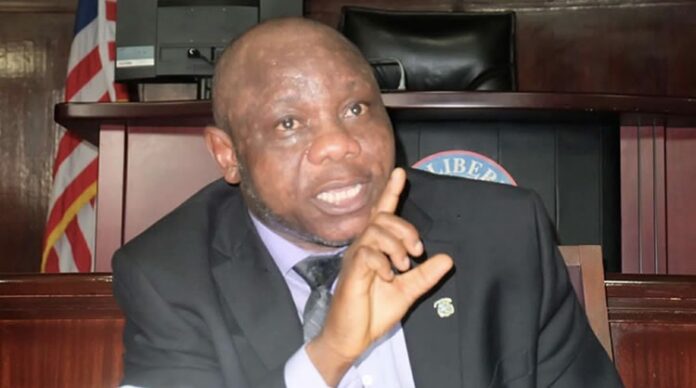MONROVIA – In a decisive move to reinforce accountability within government ranks, President Joseph Nyuma Boakai has suspended the Commissioner-General of the Liberia Immigration Services (LIS), Honorable Stephen H. J. Zargo, for three months without pay. The suspension, announced through an Executive Mansion press release signed by Presidential Press Secretary Kula Bonah Nyei Fofana on Wednesday, November 14, 2024, underscores the Boakai administration’s commitment to enforcing high standards of professionalism across public service.
The release cited “administrative reasons” for the suspension but did not elaborate on specific details, leaving the public and government insiders speculating on the underlying issues. In the meantime, Commissioner Zargo is expected to hand over all official materials, assets, and office accessories to Deputy Commissioner-General for Administration, Mr. Elijah F. Rufus, who will manage the institution during Zargo’s absence.
President Boakai’s suspension of such a high-ranking official reflects a clear message to all public servants regarding the administration’s zero-tolerance stance on any lapses in duty or integrity. According to the Executive Mansion, this measure aims to “uphold the highest standards of professionalism and accountability,” serving as a reminder of the responsibilities and ethical expectations placed upon government officials.
The decision aligns with President Boakai’s pledge to prioritize the rule of law and maintain integrity within public institutions, reinforcing his administration’s focus on transparency and effective governance. By holding public officials accountable, the President aims to strengthen public confidence in government institutions, ensuring that officials serve with “honor and diligence.”
The suspension has raised discussions about the Boakai administration’s ongoing efforts to instill discipline and foster a culture of responsibility among government officials. As the three-month suspension period conceals, attention will likely remain on the LIS and its operational oversight, with stakeholders hoping that this administrative action leads to improved accountability and standards across the institution.







